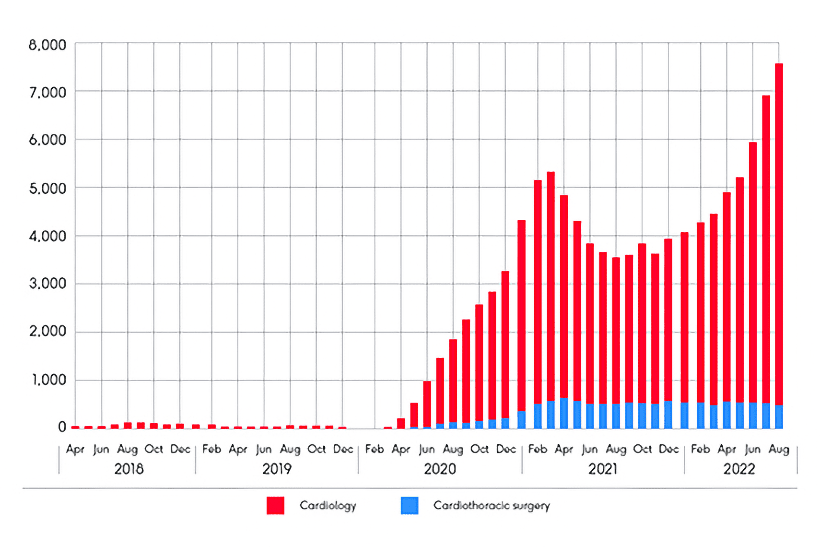By Dr Jonathan Shurlock
Edited by: Dr Saadia Aslam
The British Heart Foundation has responded to recent figures released from NHS England outlining the increasing waiting time for patients to receive heart related healthcare. While this has been recognised across all areas of the NHS, the data shows a continuing deterioration in cardiac waiting lists.
According to NHS England the number of people on such waiting lists has reached a new high of 369,204 as of the end of January 2023, in England alone. This equates to a 58% rise compared with February 2020.
Further figures from the report, highlight the difficult position the NHS is in:
- 136,171 people have been waiting over four months for potentially lifesaving care
- 9,332 people have been waiting over a year for their treatment (compared with 28 in February 2020)
It is not only elective cardiac care that has been impacted, front line ambulance responses to potential cardiac problems have also deteriorated. The average response time for a category 2 call (which includes heart attacks) was 32 minutes in February 2023, missing the official target of 18 minutes. It should be noted that the government has since set a new average target of 30 minutes over 2023/24.
These delays and extending waiting periods are likely to have an impact on individuals’ health, outcomes and their satisfaction of healthcare provision. In the context of a workforce crisis, ongoing industrial action, and increasing demands, a clear strategy is required. The BHF have proposed changes required to begin to overcome these challenges. It is evident that significant steps will be needed to address the current situation.

